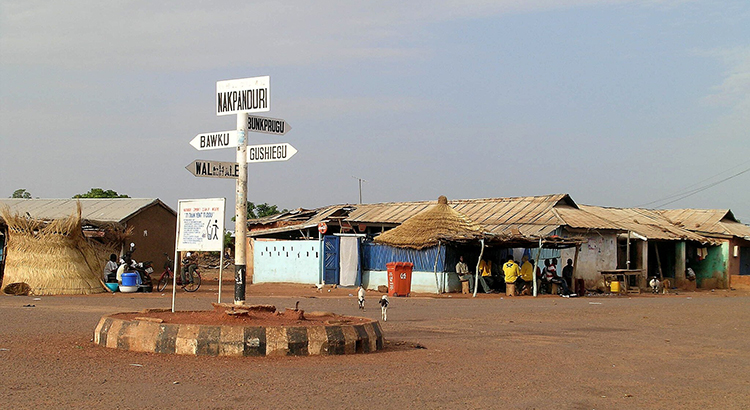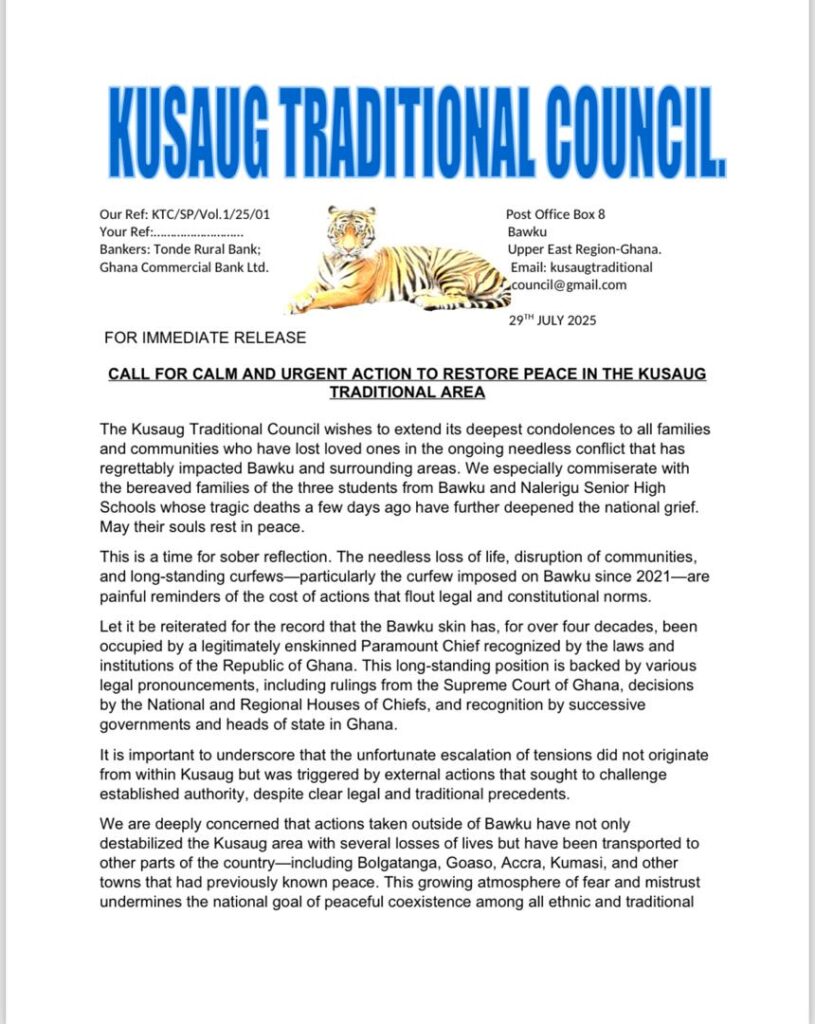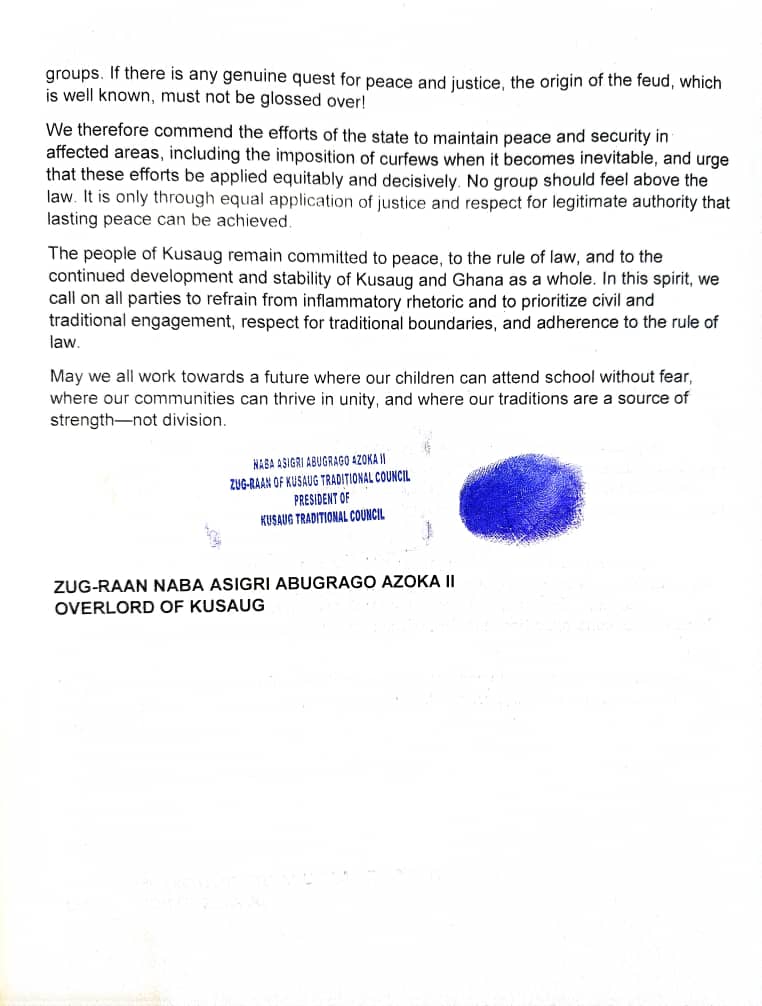
The Kusaug Traditional Council has expressed deep sorrow over the continued, needless conflict affecting Bawku and surrounding areas, offering heartfelt condolences to all families and communities who have lost loved ones.
In particular, the Council mourned the recent tragic deaths of three students from Bawku and Nalerigu Senior High Schools, describing the loss as a painful blow that has deepened national grief. “May their souls rest in peace. This is a time for sober reflection,” the statement read.
Highlighting the human and social toll, the Council pointed to the loss of life, displacement of communities, and the longstanding curfew imposed on Bawku since 2021 as painful reminders of the consequences of disregarding legal and constitutional norms.
Reaffirming the legitimacy of the Bawku skin, the statement emphasized that for over four decades the Paramount Chief has been duly enskinned and recognized by Ghana’s legal and traditional institutions—including rulings by the Supreme Court, decisions by the National and Regional Houses of Chiefs, and acknowledgments by successive governments.
According to the Council, the escalation of tensions did not originate from within Kusaug but was provoked by external actions challenging established authority, despite clear legal precedents. “These actions have tragically spilled beyond Bawku, destabilizing areas like Bolgatanga, Goaso, Accra, Kumasi, and other towns that had previously known peace,” the Council noted.
The statement warned that this growing climate of fear and mistrust threatens Ghana’s vision of peaceful coexistence among its diverse ethnic and traditional communities. “If there is any genuine quest for peace and justice, the origin of the feud—which is well known—must not be glossed over,” the Council urged.
Commending the efforts of the state to maintain peace and security, including the imposition of curfews where necessary, the Council called for these measures to be applied equitably and decisively. “No group should feel above the law,” the statement stressed, adding that lasting peace depends on equal application of justice and respect for legitimate authority.
Reaffirming its commitment to peace, the rule of law, and development, the Kusaug Traditional Council appealed to all parties to avoid inflammatory language and instead prioritize dialogue, civil and traditional engagement, and respect for established traditional boundaries.
“May we all work towards a future where our children can attend school without fear, where our communities can thrive in unity, and where our traditions are a source of strength—not division,” the Council concluded.
By Peter Quao Adattor










